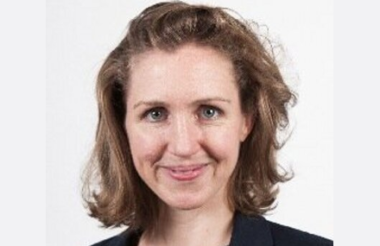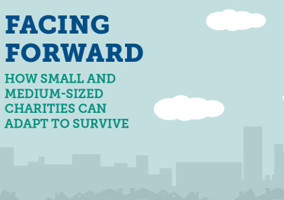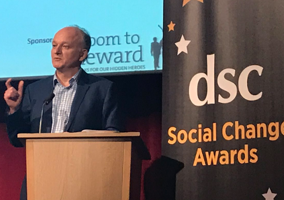A chief executive of a small service delivery charity has said that one of the things holding her organisation back from advocacy work is “pressure not to say anything too controversial”.
Sarah Mitchell, chief executive of Carers Network, a charity that supports voluntary carers in London, was speaking at the launch of Lloyds Bank Foundation report, Facing the Forward, yesterday.
In response to a question about the challenges small charities face when it comes to advocating on behalf of beneficiaries, she said that being heavily reliant on local authority contracts is a barrier.
“We see the results of cuts to social care,” she said, but that “we do get quite a lot of pressure not to say anything controversial” and that “campaigning is not funded for service charities”.
She said that one way to deal with this was to make its information available for other campaigning organisations to use.
“We have a huge wealth of case studies other people could use,” she said, and that sometimes collaborating with bigger charities with resource was a way to advocate more effectively for beneficiaries.
‘We don’t always know who to advocate to’
Michelle Hill, chief executive of TLC - Talk, Listen, Change in Greater Manchester, said that it is often hard for small charities to identify the right people to make their case to – particularly in areas like Manchester which are in the process of restructuring local government.
“It can be really difficult to know which table to be at,” she said.
She also said that “having capacity to get staff to a meeting” can be a problem and that developing the skills “to leave your organisation hat at the door” and think about the beneficiary could be a challenge.
Charlotte Ravenscroft, director of Evidential Consulting and author of the Lloyds Foundation report, said that in small charities it is often the chief executive who needs to lead on advocacy and that funders can help by providing support for them.
She also said that they needed to be “confident that the Charity Commission guidance does allow them to be vocal”.
Small charities need to diversify
Mitchell and Hill said that both their organisations had put in place measures to diversify their income streams and have launched a new strategy.
Carers Network has “acquired” another local charity, Mitchell said, which provided it with reserves to invest in development roles.
“We have our first fundraising strategy ever,” she said. She said her charity was also doing more impact measurement and communications activity because “as a small charity nobody really knew who we were”.
Hill said that cuts are “reshaping the sector” and that her charity hit a “crunch point” three years’ ago but now has a new strategy and income diversification plan in place.
‘We don’t have to survive’
Mitchell also said ensuring its beneficiaries continued to be supported was more important than the survival of the charity.
“We don’t think we have to survive as a charity,” she said. “If it comes to the point where our income isn’t enough then our trustees have already thought about what we would do.”
She said this would involve looking at merger options to make sure “the work does still continue”.
‘We need to be more strident’
Closing the event, Paul Streets, chief executive of Lloyds Bank Foundation, called for the sector to be more vocal.
“As a group of voluntary organisations we need to be more strident,” he said. But also that the sector needs to have a “grown up relationship with the government”.
He said his organisation was trying to play its part by funding more core costs at small charities and providing longer term grants with minimal reporting requirements.
The foundation has also recently given £100,000 to the Small Charities Coalition to “help its advocacy role for smaller charities” because “NCVO can’t be partisan about one part of the sector, but SCC can be partisan”.
Related articles












